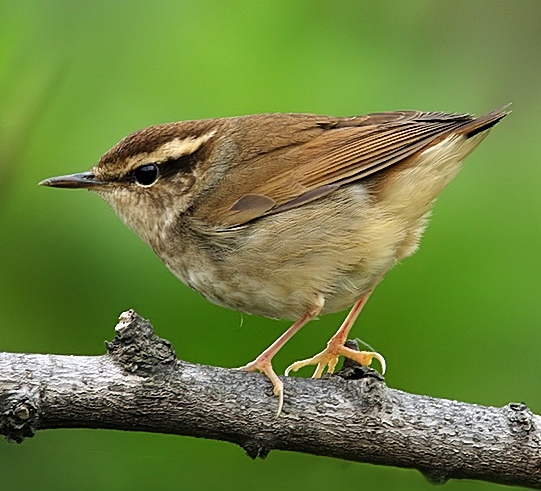 |
| Photo by Robin Newlin (Birds Korea) |
Common name:
Asian stubtail (en); rouxinol-rabicurto (pt); bouscarle de Swinhoe (fr); colirobusto de cabeza escamosa (es); kurzschwanz-buschsänger (de)
Taxonomy:
Order Passeriformes
Family Sylviidae
Range:
This species breeds in Japan, Korea and marginally into south-eastern Russia and north-eastern China. They migrate south to winter in southern China, Taiwan, Myanmar, Laos, Vietnam and Thailand.
Size:
These birds are 9,5-10,5 cm long and weigh 7,5-11,5 g.
Habitat:
The Asian stubtail breeds in temperate deciduous forests and scrublands, often along rivers and streams. Outsise the breeding season they are mostly found in moist tropical forests, but also in dry grasslands, scrublands and marshes.
Diet:
They mainly feed on the ground and among scrubs, hunting for insects, such as beetles, and other small invertebrates.
Breeding:
Asian stubtails breed in May- July. They are mostly monogamous, but some cases of polygamy have been recorded. The nest is built by the female, in a hole under dead fallen wood, under living trees or in the stream banks. There she lays 5-6 pale pink eggs with pinkish red or reddish brown blotches. The female incubates the eggs alone for 13 days. The chicks are fed by both parents and fledge 7-9 days after hatching.
Conservation:
IUCN status – LC (Least Concern)
This species has a very large breeding range and, although the global population size has not been quantified, it is reported to be locally common, with estimates of 10.000-100.000 breeding pairs in China, Korea and Japan. The population is suspected to be stable in the absence of evidence for any declines or substantial threats.







